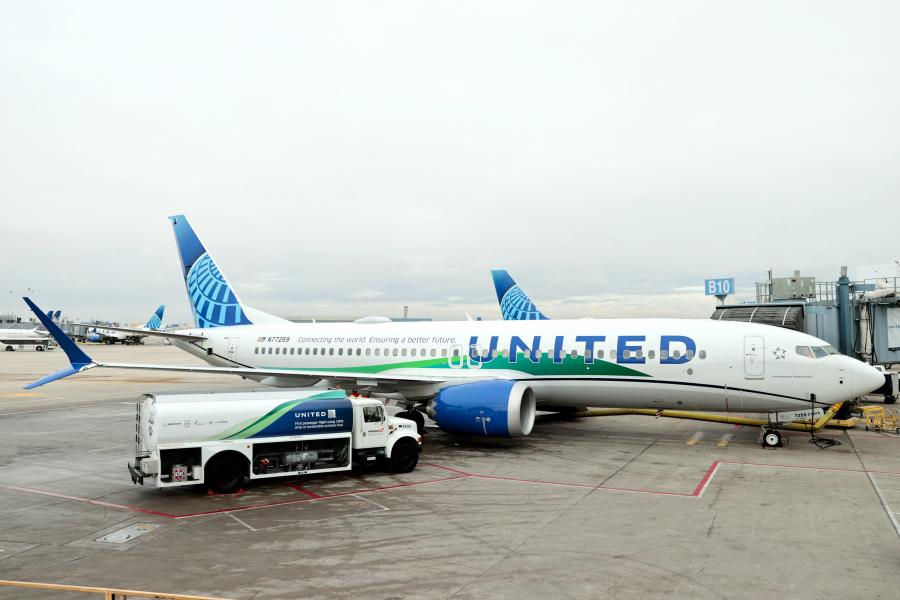Blue Blade’s new SAF technology was developed by researchers at the U.S. Department of Energy’s Pacific Northwest National Laboratory (PNNL), a leading center for technological innovation in sustainable energy. SAF, which uses non-petroleum feedstock, is a low-carbon alternative to traditional jet fuel that offers up to 85%** lower lifecycle greenhouse gas emissions.
“The production and use of SAF is the most effective and scalable tool the airline industry has to reduce carbon emissions and United continues to lead the way,” said United Airlines Ventures President Michael Leskinen. “This new joint venture includes two expert collaborators that have the experience to construct and operate large-scale infrastructure, as well as the feedstock supply necessary for success. Once operational, Blue Blade Energy has the potential to create United’s largest source of SAF providing up to 135 million gallons of fuel annually.”
United, Tallgrass, and Green Plains will each provide their unique industry expertise to help develop the joint venture. Under this collaborative approach:
- Tallgrass will manage research and development of the technology, including pilot plant development, and will manage the construction of the production facility.
- Green Plains will supply the low-carbon ethanol feedstock, and use its ethanol industry expertise to manage operations once the pilot facility is constructed.
- United Airlines will assist with SAF development, fuel certification and into-wing logistics, and has also agreed to purchase up to 2.7 billion gallons of SAF produced from the joint venture.
“At Tallgrass, we are striving to innovate how we deliver the energy that powers our nation and enables our quality of life,” said Alison Nelson, Vice President, Business Development at Tallgrass. “Air travel uniquely connects people and improves lives, and the advancement of this novel SAF technology presents a meaningful opportunity to reduce emissions from aviation. We are excited to partner with industry leaders United Airlines and Green Plains on this initiative.”
If the technology is commercialized, the location of Blue Blade’s initial plant would allow easy access to low-carbon feedstock from Green Plains’ Midwest ethanol production facilities. While the initial SAF facility intends to use ethanol, the technology has the capability to work with any alcohol-based feedstock as its fuel source.
“Our transformation to a true decarbonized biorefinery model has positioned Green Plains to help our customers and partners reduce the carbon intensity of their products by producing low-carbon proteins, oils, sugars and now decarbonized ethanol to be used in SAF,” said Todd Becker, President and CEO of Green Plains. “This partnership with world class organizations like United Airlines and Tallgrass, shows the value creation that is possible with our low-carbon platform. The potential impact of this project is a gamechanger for US agriculture, aligning a strong farm economy and a robust aviation transport industry focused on decarbonizing our skies.”
Blue Blade Energy marks one of the largest direct investments from United Airlines Ventures (UAV), United’s corporate venture arm, into SAF. Launched in 2021, UAV targets startups, upcoming technologies, and sustainability concepts that will complement United’s goal of net zero emissions by 2050 without relying on traditional carbon offsets. United has aggressively pursued strategic investments in SAF producers and revolutionary technologies including carbon capture, hydrogen-electric engines, electric regional aircraft and air taxis.
*Assuming current regulations requiring SAF to be blended with conventional jet fuel are removed to allow for the use of unblended SAF.
**Based on United’s current SAF supply

